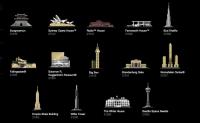
Hello guys, My second article will discuss Architecture Sets! As a reminder, the first one summarized my experiences with buying second hand lego sets and bulk. Even though the conclusions were probably predictable to many veteran BrickPicker, for me jumping in the water of the secondary hand lego market was the best way to learn where the culprits are of this trade. For those who are not interested in discovering the tips, I can summarize by telling you I live by the NICHE rule now: Net Incoming Cash per Hour of Effort. In other words: I'm building a stock of MISB sets. And that brings me to the main topic of this second blog: what to buy and what to leave out? Are Architecture sets worth it?
The name of the trade for me is more than just buying up large 'licenced' sets at discounts and wait for 2 years. I want to work out what sets could be sleeping under the radar and get those right. Maybe 'Architecture' fits that bill? I'm not sure, but lets find out! And let's see if my analysis confirms whether "FallingWater" could be the investment in this space or not... Investing is all about getting a lot of cool quality product at the brink of the retirement date. The "sleepier" the set, the better. As not many investors will be 'panic buying' it when it is gone, and you'll have ample time to stock at attractive prices. Therefore this article will explain why I think Architecture is sleeping. Second, I will show you why retirement has very much arrived and what it has and could mean for a couple of sets out there that you can still stack at reasonable prices. Through the article, you'll find reasons why people like and dislike these mini-buildings. Personally, I started off disliking it: too expensive, small, wrong scale, no playability, boring colors... But once I read and researched them, I also saw the positives: High quality, artistic, nostalgia, some luxury aspect, souvenir-like, easiliy show-cased, beautiful booklets, attractive collector items, strong design aspect, rich end-customer, sustainable demand from tourism... As you can read on the forums, the jury remains undecided on Architecture. In fact, many invetsors are frustrated as the retirement for these sets wasn't the "classic" two years. And this is a good thing. It means there could be some undiscovered jewels yet, waiting to be bought cheaply and sold for a fat margin by the smart first mover. My interest got particularly triggered when I saw how 21016 Sungnyemun behaved: the set was retired and rapidly doubled in value. Why? Is there a parallel for other sets possible? I never really looked into Sungnyemun, but I should have. Let's not miss out on the others - so I think. And that's what the article is about.
Architecture has "Sleeper Potential": 4 reasons
1. A mediocre track record.
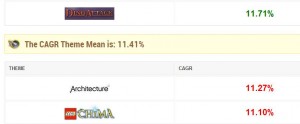 Let's start by looking at the numbers above. The CAGR rate from BrickPicker's site is +11.27%.
Let's start by looking at the numbers above. The CAGR rate from BrickPicker's site is +11.27%.
Therefore this theme sits just below the average 11.41%. Perfect! That means many investors will look elsewhere. Obviously the picture could change as more sets come EoL. Sungnyemun and the first Sears Tower just to name a few made very good progress once taken off the Lego-factory production line. People who bought the Robie House below RRP can sell it today at 200E. That's nice, but only for investors who waited for a discount in 2013 to get in.
2. Adults Only Lego.
Architecture is not the kind of set you will see in teh window pane of a Toy R Us. You have to look for these sets: they are a little hidden in the classic kids' toy store. The Lego-group doesn't promote them aggressively. The typical Lego Store has some architecture sets in the right back corner of the shop, hidden between gimmics and Cusoo. Whilst their kids are attracted by the bright colors and cool pictures, parents will browse through the shops, ask advice and pick an architecture set that has the most artistic and nostalgic attraction for them. Maybe they have seen these buildings during travels. Design, nostalgia,... these little statues can decorate an appartment for example. And taste is personal: some like Eiffel, others Pisa (this article is going awry)...
3. High Quality, High price per part
Most sets carry a premium price tag. It feels they are "luxury toys" for less price sensitive buyers who would after visiting one of the World's Wonders buy a 50$ lego-souvenir. It should come as no surprise that the 21021 Marina Bay Sands which was sold exclusively in Asia targeting tourists and testing demand for very exclusive sets is trading above the 100E mark. If tourists are ready to buy a 40E catalogue after a visit of Guggenheim in NY, it makes sense they also could buy a little Lego-building as a souvenir to bring home to family and have the booklet with stories, pictures and history added for the same price. Millions of tourists visit Paris, London or Sydney every year, therefore there should be continued interest. Once the production line stops, demand could start outstripping supply and trigger a new price equilibrium. 4. Part out value: negligeable No need to mass-acquire architecture sets for their parts. Many sets use very basic bricks and cost as much as the bricks themselves. A traditional store will look for part out values twice the amount of dollar value of the set. We can be pretty sure that the market isn't going to be flooded with the rare flat name tiles of the buildings. One can only hope that these 4 reasons will be sufficient to make these sets fly once they are end of line. The only risk of them being 'bad sellers' is that the entire concept would be stopped. That would hammer investment returns, as the longer "Architecture" would exist, the more adult fans it would generate, the more collectors would want to have the entire series, and the better the returns. Based on the comments on their website, lego's commitment to sustain the line is there. The challenge for the architecs is to come with a minimalistic approach to make scale models with small bricks. This was an idea started in the 60-ties and rediscovered 40 years later. Through its partnership with Chicago architect Adam Reed Tucker, the Architecture line - reproductions of iconic buildings rendered in Lego was launched in 2008 with the Sears Tower. My best guess is that all future creations will keep that"artistic appeal" and serve to enhance the brand image of the lego group accross all ages. I also gave customer service a call, asking them whether Architecture Studio would come to Europe. They confirmed it would be available during Q3 2014 (the soonest), and that demand for this set in Europe was huge, reinforcing their commitment to have more geographies tapping into the theme .
And now comes the interesting part. There's a new wave of sets that have gone EoL. Will investors who are sick of waiting for FallingWater to retire, see their prayers answered? Three additional sets have already retired. Did you spot them too? Are they worth it? First of all, it's clear that Robie House has gone. It didn't take that long for this set to trade back at MSRP. Next gone are Lego Architecture 21004 Guggenheim Museum and Lego Architecture 21008 Burj Khalifa. And my best guess is that the 21009 Farnsworth House is gone too as there's no more stock in the US. The Amazon website give a similar picture. In fact, the Burj is already trading at a premium there, but not yet on BrickLink. If you want to get in, now is the time.
A good buy is somthing you will be able to sell quickly with a premium. Obviously, that implies we need to look at supply and demand stats. Using 6 month data from Bricklink.com (up to May 2014), I tried to get a first impression on what is popular and what investors have overstocked.
| Supply | 6 Months Sales | Wanted List | Average Sold BL Price |
RRP | Months of Supply | Long-Term Demand Indicator |
|
|---|---|---|---|---|---|---|---|
| Big Ben | 132 | 66 | 52 | 26 | 29,99 | 12,00 | 79% |
| Brandenburg Gate | 284 | 41 | 49 | 25,5 | 34,99 | 41,56 | 75% |
| Burj Khalifa | 73 | 70 | 43 | 20 | 24,99 | 6,26 | 66% |
| Empire State Building | 186 | 18 | 68 | 17,3 | 19,99 | 62,00 | 104% |
| Fallingwater | 109 | 32 | 134 | 67 | 89,99 | 20,44 | 204% |
| Farnsworth House | 115 | 47 | 80 | 43 | 59,99 | 14,68 | 122% |
| Imperial Hotel | 94 | 16 | 49 | 114 | 129,99 | 35,25 | 75% |
| John Hancock Center | 9 | 38 | 99 | 73 | 19,99 | 1,42 | 151% |
| Marina Bay Sands | 36 | 129 | 69 | 112 | na | 1,67 | 105% |
| Robie House | 38 | 64 | 86 | 146 | 199,00 | 3,56 | 131% |
| Rockefeller Center | 100 | 54 | 56 | 31 | 34,99 | 11,11 | 85% |
| Sears Tower | 13 | 16 | 80 | 46 | 19,99 | 4,88 | 122% |
| Seattle Space Needle | 147 | 13 | 64 | 18,5 | 19,99 | 67,85 | 98% |
| Solomon R. Guggenheim Museum | 136 | 46 | 84 | 30 | 39,99 | 17,74 | 128% |
| Sungnyemun | 34 | 108 | 58 | 50 | 34,99 | 1,89 | 88% |
| Sydney Opera House | 181 | 58 | 52 | 30 | 39,99 | 18,72 | 79% |
| The Eiffel Tower | 181 | 58 | 52 | 31 | 39,99 | 18,72 | 79% |
| The Leaning Tower of Pisa | 133 | 46 | 39 | 31 | 34,99 | 17,35 | 59% |
| The White House | 206 | 31 | 77 | 42 | 54,99 | 39,87 | 117% |
| United Nations Headquarters | 94 | 47 | 37 | 45 | 49,99 | 12,00 | 56% |
| Villa Savoye | 78 | 17 | 50 | 57 | 69,99 | 27,53 | 76% |
Personally, I found the data sample small but nonetheless interesting. Supply - Demand The data is only indicative obviously, but we can clearly see that investors might have to wait a long time before the stock has gone on the Space Needle and Empire State Building (> 5 years), Brandenburg Gate and White House (3.5 Yr)! FallingWater sits at a little less than 2 years which is mainly due to its lacklustre sales volumes during the observation period. Once the set would be officially EoL, I would suspect the supply to dry up fast, making this set quickly rare. Remaining stock on Khalifa is only 6 months! Even though the sets isn't very popular, a squeeze up of prices is very possible as this isn't produced by lego anymore. The Wanted-List Next indication for long term demand is the 'wanted list'. The higher the percentage, the better the long-term interest from collectors. Guggenheim, White House, FallingWater, Farnsworth House score well on this rating. Note that people aren't in a hurry to get the recent buildings: UN, Pisa, Eiffel don't score well. The "Wanted List" is used by investors who are price sensitive and want to wait for a set to depreciate before buying. That explains why some more expensive sets (Robie, Sands) score higher than lower priced items. Note that it isn't clear how high the price on the Robie House can go. This is the most expensive Architecture set, and it would be interesting to see whether that higher price tag would limit appreciation potential. Wrapping this up: conclusions & what to buy? All in all, everyone should come with you own interpretation of this table I guess. My personal conclusions based on the research I did on the Lego website, through Q&A with friends, family and lego fanatics, the data from BrickLink and the European Amazon sites is as follows: Architecture
- will do well EoL: Robie, Sungnyemun, Marine Sands are recent proof of this
- will be there long-term for adults, tourist, collectors and creative minds (studio)
- has come to a first EoL cycle: Guggenheim, Khalifa, Farnsworth are gone/going but still available @ RRP
- shows sustained potential from collectors
- remains under the radar for now: it could be hiding "sleepers"
- doesn't warrant investment too soon: wait for retirement and unless Robie House breaks the 300$ mark, stick to the 20 - 100$ range
Clearly, My opinion on this line of products has changed drastically from negative to "constructive". I will keep close track of this area for the coming months. There could be something brewing there and who know where the CAGR will be in a couple of years! Keep you eye out for... (in order of preference)
Thanks for reading. Hopefully, you will offer me your views on this topic as well.





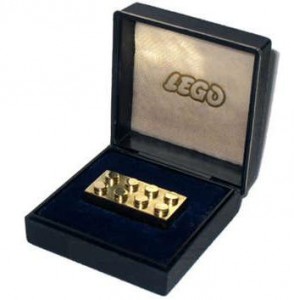
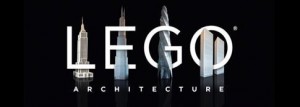

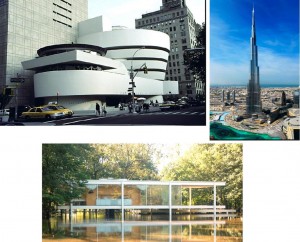



Recommended Comments
There are no comments to display.
Join the conversation
You can post now and register later. If you have an account, sign in now to post with your account.
Note: Your post will require moderator approval before it will be visible.